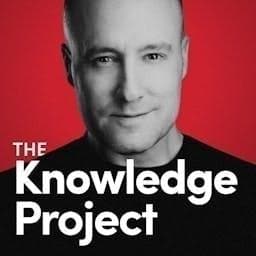Dan Jermyn joins us today to share his experiences as the head of the biggest AI and Data Science practice in Australia. He explores the criticality of thought diversity in AI development, the need to break the status quo regularly, and the importance of regulations to customer safety. He also shares his insights about building effective data science teams as well as navigating politics to create AI that, first and foremost, serves a purpose with defined ethics and explainability even within complex models.
And, of course, Dan will tell us which sci-fi universe he envisions will most closely resemble our own future. Tune in to find out all of this and more about the remarkable projects and progress Dan has contributed to AI and machine learning in Australia.
Bio:
Dan Jermyn is Chief Decision Scientist at Commonwealth Bank of Australia, who have reported 7.5 million digitally active customers as of 10/02/2021.
Dan is an experienced leader in both technology and data science, with an established record of building award-winning, global teams in digital, big data and customer decisioning. Dan joined the Commonwealth Bank of Australia in 2017, where he has responsibility for delivering great customer experiences and innovative new solutions through data science.
Dan has also worked as a strategy consultant and then Head of Analytics for an agency in the UK as well as co-founding a successful digital technology startup. Prior to his current role, he held various positions at the Royal Bank of Scotland including Head of Digital Analytics and Head of Big Data & Innovation.
0:30 Has the foundation of banking changed over the last five or so decades? While banks still look out for the financial wellbeing of the communities they serve, the way we interface with our banks has changed—our bankers rarely know our financial dreams and wellbeing—an issue data scientists seek to resolve.
3:00 What will be the value proposition of machine learning to banking in the year 2050? How have futuristic technologies like robotics already changed the banking experience? Dan shares how robotics in banking has allowed frontline staff to derive more meaning from their work as well as how we can expect this trend will grow.
5:40 What is the state of the ecosystem for fintechs? Are small disruptors still able to break into the field alongside big players? Do different banking cultures have a competitive advantage? Does diversity of thought play a role?
7:30 On the topic of banking regulations—is it friend of foe to the Big Four? Dan discusses customer safety and banking's contributions in supporting the critical infrastructure to make Australia a leading digital economy.
9:15 Dan describes the organization's philosophy of developing machine learning and AI for banking purposes. Is there a roadmap for the best route for using AI and ML for service and customer solutions? Dan discusses with us a moderated approach that keeps purpose at the forefront of AI development—that end products must have a use case.
12:15 What are the most valuable lessons Dan has learned about building and scaling a data science team? He shares with us the criticality of diversity that extends beyond culture and gender into diverse experience, including people who were once first-line banking employees.
15:00 How do you navigate complex environments with deep issues such as data governance if you're trying to advance your data science career? Is there an imbalance in the market as it pertains to data science talent? Dan discusses the benefit of hiring fresh out of college people who will break the status quo.
23:00 Dan discusses explainable AI in the context of innovative banking and the purpose and benefit of having a global ethical AI toolkit.
27:00 How does Dan see academia and industry working together going forward? Dan explains the importance of independent verification as well as symbiotic education—how members of industry can open conversations about current real-world issues as well as the ability of experts in the field to teach industry leaders in support of new and usable solutions. Dan also fills us in about coming together in groups to see new contexts for technology.
30:00 What is the corporate decision process behind Benefits Finder? Dan explains the program which shows banking customers benefits they may be entitled to from various governmental programs that they may not have been aware of. How did he and his team create a program like this and why?




































